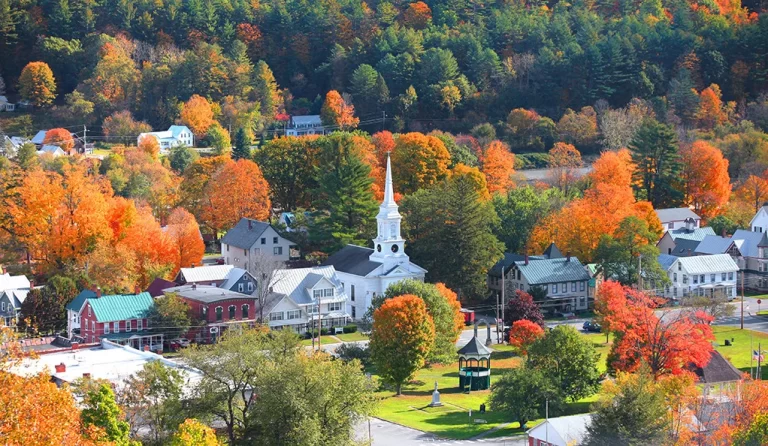The Seven Wonders of the Word

It’s been called the most famous sentence in all literature.
It appears on t-shirts, bumper stickers, and signs everywhere—it’s even printed on the bottom of the drink cups at In-N-Out!
Of all the 31,102 verses in the Bible, there’s one that’s king.
And for good reason.
In a mere 25 words (in Greek) it sums up the Gospel and God’s mission in the world throughout the ages.
You’ve heard of the Seven Wonders of the World—those seven remarkable manmade structures of ancient times: the Colosseum in Rome, the Great Wall of China, the Taj Mahal in India, to name three.
Well, somebody out there got creative and came up with the title, The Seven Wonders of the Word as a innovative way to think of John 3:16.
And as the title implies, there are seven amazing truths about the Gospel contained in one simple sentence.
John 3:16 reveals:
The Highest Authority.
The Mightiest Motivation.
The Most Priceless Gift.
The Widest Invitation.
The Easiest Escape.
The Greatest Tragedy Averted.
The Most Valuable Possession.
The Highest Authority: God.
No. We didn’t all come from some primordial mudpuddle—life doesn’t come from non-life; something, doesn’t come from nothing.
We were, in fact, created with divine dignity and sacred purpose, fearfully and wonder-fully made by the all-knowing, all-powerful, ever-present God—the Maker of Heaven and Earth, whose image we bear and whose love we are privileged to enjoy.
What a shame to teach generations of children that men and women are but soul-less animals, random collections of protoplasm careening through the ages without purpose and without a sacred calling. No wonder the world is in a state of perpetual chaos.
And that’s too bad because…
There’s a magnificent God of splendor and glory so great, “even the highest heavens, cannot contain him” (2 Chronicles 2:6). He who set the constellations in place and calls each star by a name (Psalm 147:4), invites us to know Him and be known by Him…
“the compassionate and gracious God, slow to anger, abounding in love and faithfulness, maintaining love to thousands, and forgiving wickedness, rebellion and sin” (Exodus 34:6).
What a mighty God we serve!
The Mightiest Motivation: So loved the world.
We use the word love so often, sometimes I think it’s lost a little of its sparkle as a result.
I mean, we love golf, and we love pepperoni pizza and our poodle, and we love our spouses, we love our children, and we love our God.
I guess one size fits all?
Not so in the Bible.
The Scripture uses a special word for the love of God, the love that God is (1 John 4:7).
God’s love is distinct from and higher than its worldly, unworthy counterpart. It surpasses knowledge itself (Ephesians 3:19).
It loves for the sake of loving, wanting nothing in return. The love of God cares only for the best interests of the beloved.
It puts human love to shame because His love can:
love enemies, treat the wicked and ungrateful kindly, turn the other cheek and go the extra mile.
You can mock it, beat it up, and crown it with thorns and nail it to a piece of wood, and while it lays dying it says:
“Father, forgive them, for they don’t know what they’re doing.”
God’s love sees past our greatest sin and to our greatest need. And He comes to our rescue.
Behold! What manner of love is this, that we should be called the children of God (1 John 3:1).
The Most Priceless of Gifts: He gave His Only Son.
What’s the best present you’ve ever received?
When I was 16, my dad had a powder-blue, 67′ VW Bug sitting in the driveway. And after the cake and the song, he told me to go to the driveway.
I couldn’t believe my eyes.
But how would one measure the wow-factor of a gift like God’s own Son.
He’s the Second Person of the Godhead, mind you—very God of very God as Spurgeon liked to call Him.
Listen to how the Scripture exalts Him:
In Him lie hidden all the treasures of wisdom and knowledge (Colossians 2:3).
In Him, the fullness of deity dwells in bodily form (Colossians 2:9).
For by Him all things were created, in heaven and on earth, visible and invisible, whether thrones or dominions or rulers or authorities—all things were created through Him and for Him (Colossians 1:16).
This is the divine Son of God, the gift of the Father! The Son, whom the Father loves; the Son, in whom the Father is well pleased (Matthew 3:17).
Sinless.
Pure.
Good.
Divine.
And in spite of how precious He is, He was gifted to you and to me.
(Personally, I wouldn’t give up my baby boy even for the most righteous person on earth, let alone some wretched sinner!)
So what does that say about the way God loves you? It says a lot, doesn’t it?
I love that old (and very moving) hymn that goes:
What wondrous love is this, O my soul, O my soul!
What wondrous love is this, O my soul!
What wondrous love is this, that caused the Lord of bliss
to bear the dreadful curse for my soul, for my soul,
to bear the dreadful curse for my soul.
“Thanks be to God for His Gift that is too wonderful for words” [indescribable/inexpressible]
(2 Corinthians 9:15 GNV).
The Widest Invitation: Whosoever.
The devil’s name means slanderer—so he’s an expert in telling lies, especially about God.
And somehow he’s managed to get the world to think that the gospel is for some, and not for others.
But that’s ridiculous.
Doesn’t the qualifier “whosoever,” say it all?
And, to me, it’s the happiest word in that glorious sentence.
Whosoever: anyone, everyone…
no matter who you are or what you’ve done or where you’ve been or where you’re from!
Question: Who qualifies for forgiveness of sins and everlasting life? Who gets a pass on the coming judgment?
Answer: Anyone who wants it—eternal life is free for the asking!
Male or female, black or white, rich or poor, morally inclined or just plain evil, religious or secular— if you’re a “whosoever,” and you want to live, there’s a place at the Lord’s table with your name on it.
There’s only one condition.
The Easiest Escape: Whosoever believes in Him.
The reason it’s the easiest escape goes back to how we ended up in this predicament in the first place.
God created a perfect world and placed us in a garden paradise, and it was all “very good.”
No death, no sorrow, no crying, no mourning, no pain.
Until… chapter three!
The Lord warned Adam and He instructed Eve not to eat from the tree of the knowledge of good and evil, and that if they did, they would die.
And you know what happened.
The tempter tempted, and they ate.
And they died.
And we died with them, because we were in them, as the Bible says.
And, no, they didn’t fall over dead in the moment; rather, they became spiritually estranged, disconnected, if you will, from the Author of Life.
Tragically, and why we need to be saved, every human born to them and after them, inherited their sin nature.
Those two sinners, dead in sin, estranged from God, gave birth to sinners, who are in the same boat:
Anyone who sins is destined “once to die, and after that to face judgement” (Hebrews 9:27).
So, all that to say—God made a way out, and it’s so easy, it sounds too good to be true!
Since our problem is that we are dead in sin, the answer isn’t “being good,” but being made alive, reconciled back to the Source of Life.
Jesus put it this way: You must be born again, born from above by the Spirit of God.
And that happens when we believe in Him.
Jesus lived the perfect life for you and me and died the death we all deserved.
And then the good news comes: Trust Me and live!
By faith alone.
Through grace alone.
From Christ alone.
Such a deal! Everything for nothing!
“Let the one who is thirsty come; and let the one who wishes take the free gift of the water of life” (Revelation 22:17).
The Greatest Tragedy (Averted): Should not perish.
The absolute horror of what Jesus endured on our behalf shows us that God does not want anyone to perish!
“I take no delight in the death of the wicked; rather, I want them to turn from sin and be saved” (Ezekiel 33:11).
It’s good to remember that God never intended hell to be a punishment for man—it was created for the devil and his angels (Matthew 25:41).
Jesus pleaded with the crowds with all his heart:
What does it profit a person if they gain the whole world and lose their own soul! And what wouldn’t a person give up in exchange for their soul (Mark 8:36)?
The awful existence of hell, makes our salvation all the more wonderful!
We just baptized another 20 people. Praise God!
One of those men who just got saved is 89-years-old!
After I baptized him, he said with great relief in his voice and a gleam in his eye:
Wow—that was a close call. To find Christ after all this time… I missed perishing by the skin of my teeth!
Have you ever come inches from a terrible car accident? You look up and realize you’ve just been spared from a crash, and all by a mere hairbreadth.
It takes like 10 minutes for the adrenaline to leave your system!
So what about this amazing near tragedy of the eternal kind?
You and I might’ve missed heaven, and like so many others, we were on the broad road that leads to destruction (Mathew 7:13).
But His kindness led us to repentance, and now we are eternally safe, resting in His love.
(Simply) look to me, all the ends of the earth, and be saved (Isaiah 45:22).
And finally…
The Most Valuable Possession: Have eternal life.
We were sharing the gospel with a woman on the streets of Sebastopol.
When we got to the living forever part, she expressed dismay.
“Ew, that sounds terrible,” she scoffed. “I would never want to live forever.”
Well, of course she had the wrong idea, and we quickly tried to clarify:
We’re talking about renewed quality of life—Jesus reverses the curse and “makes all things new.” We will be given “glorious bodies like His” and dwell with Him in a place Christ called Paradise.
Jesus used this word when He encouraged the repentant thief on the cross that he was headed to heaven:
“Today, you will be in Paradise with Me.”
The word comes from the Persian language; it was used to describe their magnificent royal gardens.
And those Babylonian gardens were considered some of the wonders of the ancient world—breathtaking in their beauty.
Experts cultivated flowers with vibrant colors and beautiful fragrances, prolific fruit trees, cascading water falls and crystal clear streams. Those garden paradises were filled with a menagerie of exotic wildlife as well. Exquisite beauty for the eye to behold, while happy melodies of songbirds filled the air.
But of course, God’s Paradise will make the most stunning utopia on fallen earth look like a garbage dump by comparison.
John gives us a preview of heaven, though it’s like looking through a fogged up mirror, thanks to human limitations—because:
“No eye has seen, nor ear heard, nor has it entered into the mind of man the things God has prepared for those who love Him” (1 Corinthians 2:9).
Hard to describe something we’ve never seen, heard or imagined.
But that doesn’t stop John from trying!
There’s plenty of bling apparently: gemstone foundations, gates of pearl, streets of translucent gold. There’s a resplendent crystal sea, glorious cherubim and seraphim, and all the angelic heavenly host.
But really, that’s not the big deal.
More intriguing than the bling, is the thing that makes heaven, heaven, and that’s God, of course. He’s there—and we shall see him face to face.
“He will dwell with us. We will be His people, and God himself will be with us and be our God. He will wipe every tear from our eyes. There will be no more death or mourning or crying or pain, for the old order of things has passed away. He who was seated on the throne said, “I am making everything new” (Revelation 21:3-5)!
What will that be like?!
Well, I’ll tell you one thing—it will make all our troubles seem (as they are), light and momentary and not worth comparing to the eternal glory that awaits us (2 Corinthians 4:17)!
Therefore my heart is glad and my tongue rejoices;
my body also will rest secure,
because you will not abandon me to the realm of the dead,
nor will you let your faithful one see decay.
You make known to me the path of life;
you will fill me with joy in your presence,
with eternal pleasures at your right hand (Psalm 16:9-11).
So there you have it, (*JL)
The Seven Wonders of the World—and the very best part: it’s all for you.





